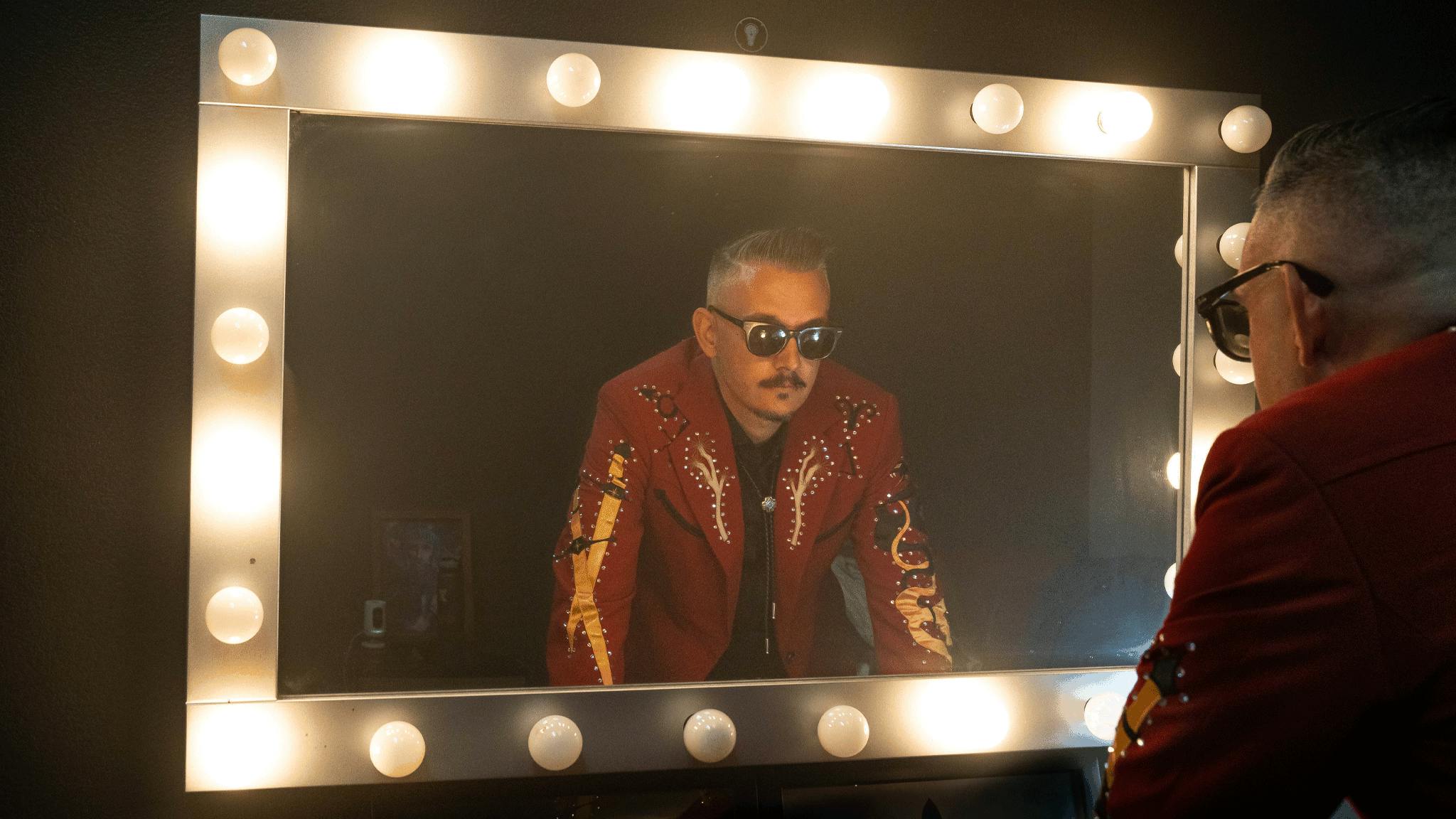Stu Folsom always wanted a Nudie Suit. It’s an odd admission from one of modern metal’s most ferocious frontmen, but it explains a lot about SpiritWorld. This band might sound like Slayer throwing down with Hatebreed, but their dusty, rhinestone-encrusted aesthetic and weird cowboy fables were shaped by the frontman’s coming of age in the United States’ wild western sprawl.
“I grew up in a house full of hillbillies,” Stu grins, recounting his early love for country icons like Chris Isaak, Porter Wagoner and Dwight Yoakam as we collar him cruising through cowboy country on I-15 to see family in eastern Idaho. “We kept horses, goats and chickens when I was a kid. A bunch of my family competed in rodeos. For SpiritWorld shows, I’ve finally got a suit of my own, but it’s a little inappropriate for the country scene. There’s a giant Baphomet goat on the back, which is way more satanic than I imagined when I was watching those great singers growing up. I guess I couldn’t really wear it to anywhere but a heavy metal concert!”
If you’re still struggling to understand what exactly SpiritWorld is all about, searing second album Deathwestern sums it up in a 36-minute nutshell. Opener Mojave Bloodlust sets the scene with an Ennio Morricone-esque composition, combining twangy six-strings with the sounds of eagles, horses and rattlesnakes. ‘Are you anti-Christ or are you for Christ?’ asks a disembodied voice. ‘Those are your only options.’ Then all hell breaks loose. Literally. Picking up where last year’s Pagan Rhythms left off, we’re transported to a callous, bloody Old West where the gates of hell have just fallen open, as seen through the eyes of cowboys and native Comanches alike.
Crucially, we cannot overstate how awesomely gnarly it all sounds.
“I’m a hardcore kid through and through,” Stu shrugs by way of acknowledgement. After leaving the family homestead, he fell hard into Las Vegas’ no-nonsense underground scene, fronting legendary local HXC outfit Folsom through the heady days of the 2000s and early 2010s. All that learning can be heard here. We get ’80s thrash clashing with ’90s Florida death metal. The heavy grooves of Pantera and Sepultura. And there’s a taste of the cathartic, pit-rumbling chaos of outfits like Cro-Mags, Leeway, Blood For Blood and Snapcase.
“It wouldn’t be appropriate to drop in an old cowboy trail song in the middle of that,” Stu stresses that there was never any temptation to add gimmicky banjos, fiddles or pedal-steel into the mix. “I just want a record that I can listen to front-to-back and bang my head.”
